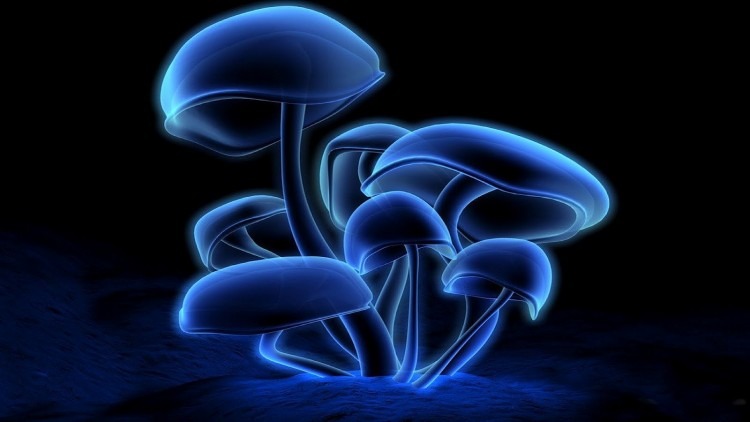
By Alexa Erickson, Collective Evolution
Psilocybin — or magic mushrooms — have been used in traditional healing rituals for hundreds, even thousands, of years; for more than 40 years, the drug has been illegal in the U.S..
But recent findings could tear down the taboo surrounding the drug, as they found it has the ability to ease depression and soothe anxiety in patients dealing with serious illness and the thought of an impending death.
Two separate studies discovered that a single moderate-to-large dose of psilocybin was able to help trial subjects combat their profound distress.
Harvard psychology professor Timothy Leary infamously sparked an aggressive promotion of LSD in the 1960s for a consciousness expansion mechanism that would ultimately lead to the loss of his job and halt all legal research on the benefits of psychedelics.
The research blackout came to an end in 1999 when Roland Griffiths of Johns Hopkins initiated a new series of studies on psilocybin. He has since become known as the grandfather of the current psychedelics research renaissance, and a 21st-century pioneer in the field. Unlike Leary, however, he does not wish or try to be some sort of activist or shaman, rather he leads a road of scientific caution as a clinical pharmacologist and author of over 300 studies on mood-altering substances such as coffee and ketamine.
Griffith says his initial interest with psychedelics came from his own mindfulness meditation practice that focuses on the healing effects of an altered state of consciousness. His interest was further sparked when he administered psilocybin to volunteers for his research, and found that two-thirds of the participants called their psychedelic journey among the most important experiences of their lives.
Now, Griffiths touts psychedelics for the ability to treat debilitating conditions like drug and alcohol dependence, depression, and post-traumatic stress disorder.
“We spent at least eight hours talking to people about their cancer, their anxiety, their concerns and so on to develop good rapport with them before the trial. During the sessions there was no specific psychological intervention—we were just inviting people to lie on the couch and explore their own inner experience,” explained Griffiths on his groundbreaking study that could break the barriers of psychedelics for medicine.
He continued on to say:
“There is something about the core of this experience that opens people up to the great mystery of what it is that we don’t know. It is not that everybody comes out of it and says, ‘Oh, now I believe in life after death.’ That needn’t be the case at all. But the psilocybin experience enables a sense of deeper meaning, and an understanding that in the largest frame everything is fine and that there is nothing to be fearful of. There is a buoyancy that comes of that which is quite remarkable. To see people who are so beaten down by this illness, and they start actually providing reassurance to the people who love them most, telling them ‘it is all okay and there is no need to worry’— when a dying person can provide that type of clarity for their caretakers, even we researchers are left with a sense of wonder.”
With the results of the research now published, people are wondering what’s next, and Griffiths says there’s only more to come.
“The Heffter Research Institute, which funded our study, has just opened a dialogue with the FDA (Food and Drug Administration) about initiating a phase 3 investigation. A phase 3 clinical trial is the gold standard for determining whether something is clinically efficacious and meets the standards that are necessary for it to be released as a pharmaceutical. Approval would be under very narrow and restrictive conditions initially. The drug might be controlled by a central pharmacy, which sends it to clinics that are authorized to administer psilocybin in this therapeutic context. So this is not writing a prescription and taking it home. The analogy would be more like an anesthetic being dispensed and managed by an anesthesiologist.”
He’s also currently conducting research on psilocybin and smoking, using the psychedelic along with cognitive behavioral therapy with cigarette smokers to determine if the powerful experiences of psilocybin can be connected to the intention and commitment to quit smoking for people who have failed repeatedly to do so. “Earlier we ran an uncontrolled pilot study on that in 50 volunteers, in which we had 80 percent abstinence rates at six months. Now we are doing a controlled clinical trial in that population,” he says.
But still, a question for scientific enthusiasts remains: what’s actually going on in the brain with the use of this drug?
“We are doing neuro-imaging studies. Dr. Robin Carhart-Harris’s group at Imperial College in London is also doing neuro-imaging studies. So it is an area of very active investigation. The effects are perhaps explained, at least initially, by changes in something [in the brain] called ‘the default mode network,’ which is involved in self-referential processing [and in sustaining our sense of ego]. It turns out that this network is hyperactive in depression. Interestingly, in meditation it becomes quiescent, and also with psilocybin it becomes quiescent. This may correlate with the experience of clarity of coming into the present moment.”
With so much positivity surrounding magic mushrooms as medicine, it seems inevitable that more research will boost acceptance and support for the drug among other psychedelics as a means for healing.